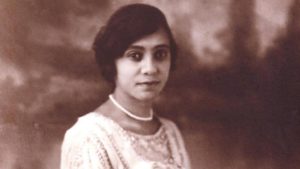
Composer Profile: Florence Price, A Barrier-Breaking Creator of Wide Ranging Classical Music
By David Salazar“My dear Dr. Koussevitzky, To begin with, I have two handicaps—those of sex and race. I am a woman; and I have some Negro blood in my veins.”
These are the words of composer Florence Price in a letter to conductor Serge Koussevitzky in an attempt to find a champion for her work.
Koussevitzky would not be among those to pay Price, born on April 9, 1887, much attention and as a result, much of her legacy would be overlooked and in many cases, forgotten throughout subsequent decades.
And yet, there is no denying or forgetting her importance to not only women composers, but also black artists.
Born in Arkansas in a mixed-race family, her father was a dentist and her mother a music teacher who had a major impact on her early development. Price had her first piano performance at the age of four and published her first composition at age 11.
She would go on to the New England Conservatory of Music and initially identified as Mexican to avoid the prejudices against African Americans. She would graduate in 1906 with honors.
From there, she moved back South and became the head of a historically black college in Atlanta. After some racial incidents, including a lynching, she and her family moved north and eventually settled in Chicago.
It was in Chicago that she initiated her composition career in earnest, studying with major professors and publishing pieces for piano in 1928.
After her divorce, she moved in with pianist Margaret Bonds, who connected her with writer Langston Hughes and contralto Marian Anderson; the latter would champion Price’s works and help her rise the ranks in the world of classical music.
In 1932, Price submitted a composition to the Wanamaker Foundation Awards and won first prize for her Symphony in E minor. The piece was premiered by the Chicago Symphony Orchestra, making it the first composition by an African-American woman played by a major orchestra.
She would go on to compose several other major pieces of music, including concertos, a Suite for String Instruments commissioned by Sir John Barbirolli, and several songs.
Price would pass away on June 3, 1953.
However, following her death, many of her works were abandoned. She has seen a resurgence in recent years.
Major Compositions
Her most notable work during her time was her first Symphony, but she also had a wide range of vocal output including arrangements of many spirituals and her song cycle “Songs to a Dark Virgin” with words set by Langston Hughes.
Another notable work was “The River and Those Dwelling Upon Its Banks,” which was dedicated to Arthur Olaf Anderson, one of her mentors.
Watch and Listen
You can listen to Christine Jobson’s album dedicated to the vocal music of Florence Price here.
Categories
Opera Wiki

